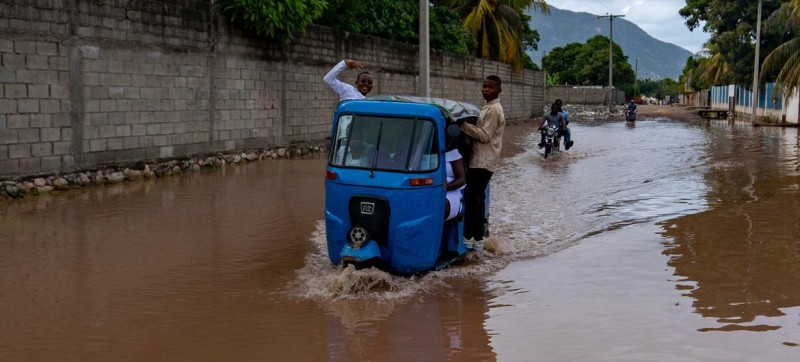
WFP Haiti/Theresa Piorr Early warning systems can help to mitigate the effects of extreme weather and reduce the impact of floods, for example in northern Haiti (file).
The event aimed to mobilize Prime Ministers to support the Early Warnings for All initiative (EW4ALL) in the face of mounting climate hazards.
Tweet URL
2021 was the region’s fourth costliest hurricane season on record, with 21 named storms, including seven hurricanes.
Protecting vulnerable communities
UN Secretary-General António Guterres announced EW4ALL at the COP27 climate change conference in Egypt in November.
The initiative calls for investment across disaster risk knowledge, observations and forecasting, preparedness and response, and communication of early warnings, with particularly priority placed on vulnerable communities.
It outlines initial new targeted investments of $ 3.1 billion between now and 2027, equivalent to a cost of just 50 cents per person per year.
Saving lives, reducing losses
The World Meteorological Organization (WMO) and the UN Office for Disaster Risk Reduction (UNDRR) are co-leads in the plan’s implementation.
In a report last year, they noted that less than half of all countries are not protected by multi-hazard early warning systems, which are among the most proven, cost-effective climate adaptation measures.
Not only do they save lives, reducing disaster mortality by a factor of eight, but they also reduce economic losses in the aftermath of climate catastrophes.
“The number of weather-related disasters around the world has risen fivefold over the past 50 years, yet not all countries in the Caribbean have end-to-end early warning systems,” said Petteri Taalas, the WMO Secretary-General.
Cooperation and investment
At the regional launch in Barbados’s capital, Bridgetown, leaders outlined practical measures to ensure EW4ALL is incorporated in disaster risk management strategies, while also highlighting work already underway, including by entities such as the Caribbean Disaster Emergency Management Agency (CDEMA).
“The Early Warnings for All initiative offers us an opportunity to strengthen cooperation around investment in multi-hazard early warning systems to ensure the safety of the people of the Caribbean,” said Elizabeth Riley, Executive Director of CDEMA.
While 19 States and territories participate in CDEMA, only 30 per cent have established roadmaps for multi-hazard early warning systems.
WMO stressed that it is vital to support the Caribbean in building climate and disaster resilience so that countries can take early action.
“Launching Early Warnings for All in the Caribbean is a critical first step toward coalescing the national, regional, and global cooperation needed to ensure everyone on Earth, especially the most vulnerable populations, are protected by multi-hazard early warning systems,” said Mami Mizutori, Special Representative for Disaster Risk Reduction and the Head of UNDRR.
The launch also coincided with a WMO conference for the region, themed: Increasing weather, water and climate resilience in North America, Central America and the Caribbean.
That event is taking place in Kingston, Jamaica, through Thursday.

